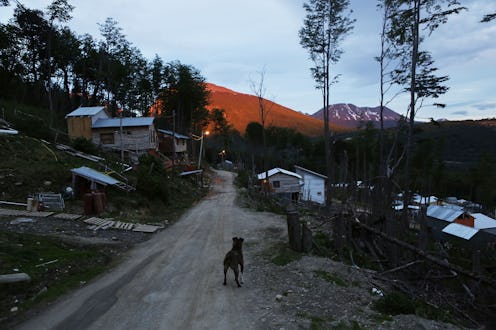News
15,000 Scientists Issued A Dire Warning To Take Climate Change Seriously, Or Else

On Monday, Bioscience, a scientific journal, published a letter from more than 15,000 scientists about the environmental damage humans are causing. The letter, entitled, "World Scientists’ Warning to Humanity: A Second Notice," called attention to rampant environmental harm and implored that people take action to protect and preserve the planet before it is too late.
Monday's letter is actually a follow-up to an warning from 1992 entitled “World Scientists’ Warning to Humanity.” That letter was signed by 1,700 scientists on behalf of the Union of Concerned Scientists, highlighting how the environment was suffering from "critical stresses" as a result of human behavior, including ozone and water depletion, destruction of forests and oceans, loss of soil productivity and living species, and overpopulation. The 1992 letter also listed multiple actions that needed to be taken to "restore and protect the integrity of the earth's systems."
Monday's warning letter indicates that humanity has largely fallen short when it comes to remedying these issues. The second letter looked back at the issues first brought to attention in the original warning letter and found that,
Since 1992, with the exception of stabilizing the stratospheric ozone layer, humanity has failed to make sufficient progress in generally solving these foreseen environmental challenges, and alarmingly, most of them are getting far worse.
The scientists expressed particular concern about "catastrophic climate change" resulting from deforestation, burning of fossil fuels, and agricultural production. They also warned of a potentially catastrophic loss of species due to extinction by the end of the century.
The letter did, however, praise the substantial decrease in ozone-depleting substances as one of the few positive environmental changes since the 1992 letter was published. As Newsweek noted, today ozone-depleting substances have decreased by 68 percent and, in November, the ozone hole is at its smallest since the year 1988 (though it is still substantial).
The letter also cited reductions in poverty and hunger, declining fertility rates due to increases in women and girls' education, and commitment to renewable energy as other positive changes that have been made, noting that these measures show that people can produce "positive change when [they] act decisively."
However, scientists warned that far more needs to be done in order to "prevent widespread misery and catastrophic biodiversity loss." The letter listed 13 specific ways in which humans can make their existence more sustainable and limit their harmful effects on the environment.
Some of these suggestions included reducing food waste and moving more toward plant-based diets, promoting renewable energy sources and limiting fossil fuel production, and creating nature reserves that protect habitats and ecosystems. Scientists also recommended ensuring that economic transactions consider environmental consequences — for example, the price of an item in a store should reflect the full environmental costs required to make it, not just the cost of the human labor used to produce it.
This second warning letter comes as world leaders have been meeting for the past two weeks at the U.N. Climate Change Conference in Bonn, Germany. Patricia Espinosa, one of the conference's hosts, noted that one of the main purposes of the conference is for world leaders to come together to take the next step in implementing the Paris climate accord and to accelerate "the transformation to sustainable, resilient and climate-safe development." These measures certainly fall in line with many of the suggestions made by scientists in the second warning letter.
However, the current U.S. stance on climate change and environmental issues seems to lie counter to many of these scientists' recommendations. Notably, in August, President Donald Trump announced that the U.S is withdrawing from the Paris climate agreement, standing alone as the only country in the world that is not part of the pact. The Trump administration also used its only official appearance at the Bonn conference on Monday to promote the use of fossil fuels, claiming they are essential to alleviate poverty. During their presentation, the team representing the administration was heckled and interrupted by a protest song.
It is clear that environmental scientists believe that the world still has a long way to go before it can ensure a sustainable, healthy future for the planet and for humanity. Much of the world does seem to be taking this environmental degradation threat seriously — and it looks that they will proceed to address these issues despite the Trump administration's absence.